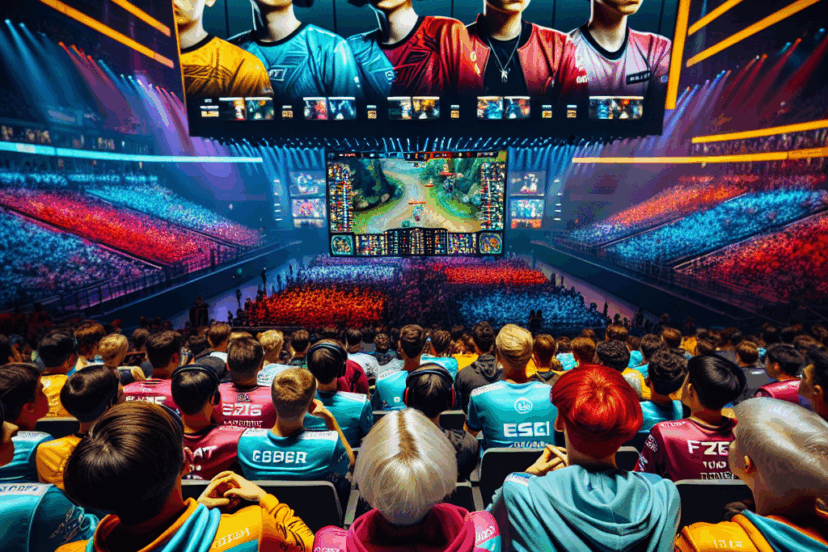Are Retro Gaming Consoles Making a Comeback?
The Appeal of Retro Gaming Consoles
Retro gaming consoles have surged in popularity in recent years, captivating the attention of both nostalgic adults and curious younger generations. With the digital era offering a range of high-definition gaming experiences, the return to classic consoles like the Nintendo Entertainment System (NES) and Sega Genesis raises intriguing questions about the motivations behind this resurgence.
Nostalgia as a Driving Force
Nostalgia plays a pivotal role in the revival of retro consoles. For adults who grew up in the ’80s and ’90s, these systems evoke vivid memories of childhood, from late-night gaming sessions to competitive play with friends. Organizations like the International Journal of Arts and Humanities emphasize how nostalgic experiences can foster a sense of belonging and comfort, leading individuals to seek out physical representations of their past, such as old gaming systems.
Younger audiences, meanwhile, have been introduced to retro games through various channels, including mobile adaptations and emulators. These experiences often provide a contrast to contemporary games, many of which prioritize graphic fidelity over engaging gameplay. The simple mechanics and distinctive art styles of retro games cultivate curiosity and interest in original hardware.
The Role of Merchandise and Mini Consoles
Commercial interest in retro gaming has also escalated due to the launch of miniaturized versions of classic consoles. The Nintendo Classic Mini and Sega Genesis Mini are prime examples that blend modern convenience with nostalgic charm. These devices come pre-loaded with various iconic games, allowing users to experience beloved titles with minimal effort.
Furthermore, the design of these mini consoles, often replicating the look of their predecessors, appeals to collectors and gamers alike. According to industry reports, sales figures for these retro consoles have been remarkably strong, indicating a profound market demand for nostalgia-based products.
Enhanced Availability of Retro Titles
As interest in retro gaming rises, several companies have devoted resources to remastering and re-releasing classic games. Platforms such as Steam and the Nintendo eShop now host an extensive collection of retro titles, making them more accessible than ever. These platforms not only cater to nostalgia but also introduce new generations to classic gaming experiences.
Moreover, publishers such as Capcom, SNK, and Bandai Namco have launched collections featuring iconic franchises, making classic titles available on modern consoles. The re-emergence of these games fosters a diverse gaming culture that incorporates both old and new experiences, attracting a broad audience.
The Impact of Streaming and Content Creation
The rise of streaming platforms and content creation has further bolstered interest in retro gaming. Gamers often share their experiences on platforms like Twitch and YouTube, showcasing gameplay, tutorials, and reviews of classic titles. This exposure helps foster community engagement, with viewers sharing their own experiences and stories related to the games played.
Additionally, content creators frequently collaborate with gaming influencers to revive forgotten classic titles, bringing attention to lesser-known gems. The shared enthusiasm energizes the gaming community, encouraging a dialogue about retro gaming that extends beyond nostalgia into an appreciation of game design and cultural significance.
The Technology Behind Retro Consoles
In the modern context, retro gaming has extended beyond mere nostalgia, largely due to the technological advancements in console design. Emulation technology allows gamers to play original titles on a variety of devices, including PCs and smartphones, without needing the original hardware. This opens up a world of possibilities for players who wish to explore the entire catalog of classic games.
Additionally, manufacturers have developed modern solutions such as FPGA (Field Programmable Gate Array) technology to create replicas of classic consoles that run games with higher fidelity and reduced input lag. Such approaches deliver an authentic retro experience while addressing many of the shortcomings of the original hardware.
Cultural Significance of Retro Games
Many retro games have left an indelible mark on gaming culture. Titles like “Super Mario Bros.” and “The Legend of Zelda” are not just games but cultural icons, influencing contemporary game design and storytelling techniques. Developers often draw inspiration from these classics, integrating elements of their mechanics and aesthetics into new titles.
Moreover, retro gaming serves as an educational tool in game design courses and workshops. Students learn about the evolution of game mechanics and the interplay between technology and creativity by dissecting classic titles. This scholarly recognition of retro games emphasizes their relevance within gaming history.
Community and Events
The retro gaming community has flourished, with various events and conventions dedicated to celebrating its legacy. Events like the Portland Retro Gaming Expo and the TooManyGames convention allow enthusiasts to meet, exchange, and revel in the joy of classic gaming. Such gatherings often include tournaments, panel discussions, and workshops, fostering connections among fans and collectors alike.
Online communities also thrive, forming forums and social media groups dedicated to retro discussions and game-sharing. These platforms enable gamers to bond over shared interests and experiences, further reinforcing the cultural significance of retro gaming.
The Future of Retro Gaming
Looking ahead, the trend of retro gaming consoles shows no signs of abating. The blend of nostalgia, the growth of digital platforms, and the continual evolution of technology are likely to sustain interest in classic gaming experiences. Game developers are increasingly recognizing the demand for remakes and sequels to beloved titles, ensuring that retro culture remains relevant in the industry.
As retro gaming evolves, enthusiasts can expect a future that retains the charm of classic consoles while incorporating new technologies, keeping the spirit of gaming alive and thriving across generations. As culture continues to appreciate the artistry and history of these games, the realm of retro gaming is poised for a bright and enduring future.




